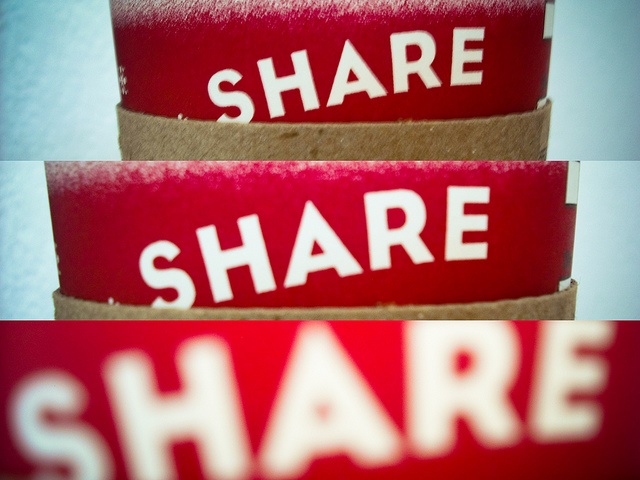Consider giving away a tool or sharing your knowledge in your next advertising campaign.
I’m not sure I’d believe any modern entrepreneur who tells me that sharing their work wasn’t part of the reason they succeeded.
Most of us could never have gotten this far without the advice, processes and entire working programs that have been released freely by some of this generation’s most charitable pros. I’ve been a longtime reader and follower of people like Pat Flynn and Gary Vaynerchuk, who have both preached the importance of sharing freely as a way to communicate authentic value to your audience.
I’ve always respected people who could confidently give their work away, either because they trusted in greater opportunities or because they just wanted to give back. However, as a marketer, keeping it close to the vest is a strong instinct. I had to teach myself to be comfortable with sharing what I knew with others, but the payoff has been amazing.
Finding Opportunity in Frustration
My company came across an internal problem involving Google Analytics data. We discovered spammers had found ways to insert advertisements into data by registering visits that were referred by links that don’t actually exist. You see it in your data, you click to find out what it is, and bam! – advertisement.
Monitoring traffic is a big part of what my company does, so anything that threatens the integrity of that data is a serious problem for us. And we weren’t alone. Plenty of people who work with websites for a living have been calling Google out on the invasion of referral spammers for the better part of a year. There was never an official solution, but we came up with our own together, and it gave me the chance to finally perform the experiment I wanted with sharing.
Giving It Away
We decided that we were going to release our solution to this problem for free, long before it was finished. There were many factors that made this project a natural candidate for sharing. For one, we relied on the community of marketers to put it together in the first place. Finding a means of dealing with the spam was a project for a lot of people and their experience and freely-released prototype tools played a large part in the tool we ultimately developed.
Second, we weren’t quite sure that it was fully “done.” It was a work in progress by design, constantly needing to be tweaked to improve its effectiveness. A traditional launch wouldn’t have even been a fit for this kind of project. We weren’t sure if it was ever going to be released as a product, and it would need a lot of feedback if it ever was going to reach that point. Sharing it for free would help us get it out to as many people as possible, and it meant getting feedback from the kind of people who were either in our market or among our peers.
Finally, I simply had high hopes. I had seen the act of sharing pay great dividends for other people in my network. I expected a great response, but I was still shocked by just how well we did.
Generating a Response
Within almost a week, we were already showing up on the blogs of major players like Moz, Ahrefs and ProductHunt. It wasn’t simply the tool that interested people, either. Our team was getting a lot of attention, too. Influential people were tweeting their thanks on our official feed, and we had multiple requests to appear for “Ask Me Anything” forums and podcasts.
I had never seen a response like this to any of our launches or traditional marketing campaigns. The act of authentically contributing to the community was worth more attention than money could buy. And the great thing was that we did end up pulling a profit from it: enough interested visitors stopped by and ordered our other services to make up for every working hour that was spent on it.
Giving a Little to Get a Lot
This was the first time I’d really trusted in sharing our work, but it’s safe to say that it was among the most powerful advertising techniques I’ve ever used, albeit a little unusual. But let’s forget profit for a minute: sharing just feels great. It feels great to be part of a community and to be told that you’ve made life easier for the people who deal with the same challenges you do every day.
Maybe you’ve got a little project on the back burner — something that’s not quite big enough to be a product, but would still come in handy in your life, anyway. Consider making an impression by giving back – it may be worth more than you ever imagined.
The Young Entrepreneur Council (YEC) is an invite-only organization comprised of the world’s most promising young entrepreneurs. In partnership with Citi, YEC recently launched BusinessCollective, a free virtual mentorship program that helps millions of entrepreneurs start and grow businesses.
Image credit: CC by carlos_maya



